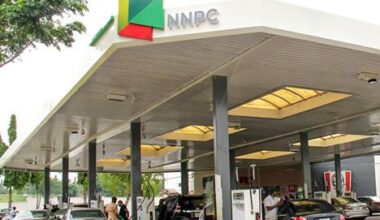There are many reasons why companies fail, and one reason for failure in business is the lack of funds, the exchange of money for the goods or services provided. There is no point in having a great product when its market value is zero, sooner or later, the competition for market share would shift to those who get enough cash flow regardless of whether they make a profit or not. When a business has cash flow, that is a sign of viability, that it has the capacity to cover its running cost over time, but needs to go through the phases of growth until it is able to begin to add some percentage which can now be kept aside as profit, for reinvestment.
The need for cash in business is so enormous that without some activities running, a total collapse might be inevitable.
Why Cash flow is Important To Business Sustainability
Primarily, cash flow generates the working capital for running the day to day affairs of a small business and why it is considered optimum in the life cycle of a small business. A business can be making high volumes of sale and no profit, but needs to be careful with servicing debt, because if it takes a large part of this money before the business breaks even, the cash flow will dry up and the business will eventually fail. Effort should be made to ensure that wholesalers or retailers make some payment before delivering the goods, a payment that comes in long after it is
Profit
Profit is what remains of the sales when the expenses of a small business are deducted. The data that constitute production cost of an item should be known as this can be reduced in other to generate the profit that can cover other costs of running the business. A business owner should also be mindful of rapid growth, as it comes with unexpected circumstances that might need to correctional measures.
These are factors that might impede profitability
1. Operational Problems
Operational problems occur when there is an increase in the volume of production, and this is because the amount of communication, staff, and energy supply that was needed to produce one thousand units of a good per day would definitely increase when demand is high and volume moves to a production of 2000 units per day.
2. Increased Corporate Spending
It is necessary to avoid spending that has no direct impact on the business in its early stage of growth. Services such as facilities management, staff hiring, delivery services, promotions, and advertisement can be handled in-house by the business instead of making payments that are way ahead of the expenses that should be incurred.
3. Human Resource Problems
Workers unfamiliar with the corporate goal of the organization can make grave mistakes that could cause the business losses whether, with direct interaction with the customer or negligence to standard operating procedures, staff not having the necessary motivation to work as their salary might just be a way of staying alive, problems with the payroll are potential issues that could hinder productivity.
Emmanuel Otori has over 9 years of experience working with 100 start-ups and SMEs across Nigeria. He has worked on the Growth and Employment (GEM) Project of the World Bank, GiZ, Consulted for businesses at the Abuja Enterprise Agency, Novustack, Splitspot and NITDA. He is the Chief Executive Officer at Abuja Data School.




